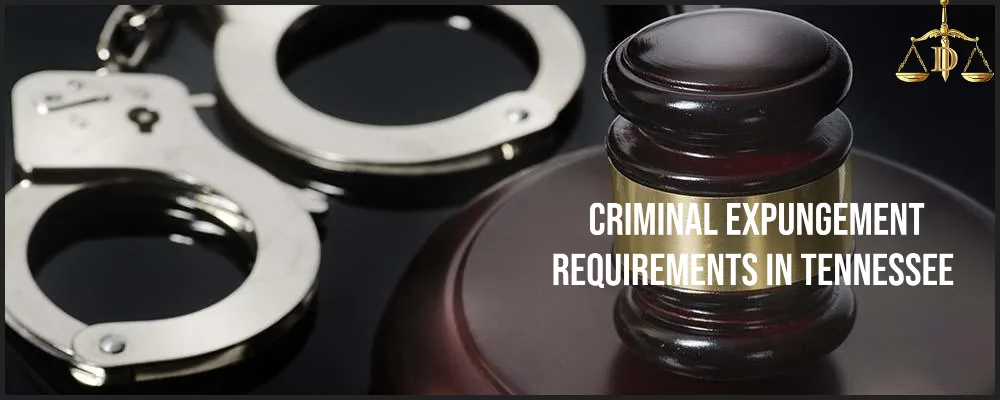What is a Criminal Expungement and What are the Requirements in Tennessee

What is a Criminal Expungement?
A criminal record can permanently harm your chances of finding employment, getting a student loan, or purchasing a new home. In the current economic climate, it is more crucial than ever to have one’s criminal record expunged in order to present a clean slate to potential lenders and employers.
Anyone interested enough to look may be able to find out about your criminal history thanks to the Internet. Computerized record-checking systems facilitate the rapid discovery of your criminal history by lenders, landlords, and employers.
The legal procedure of expunging a criminal record is known as expungement. For some offenses, Tennessee offers this procedure, which can help people move on from their past without having to worry about it. For instance, expungements basically enable people to say “no” when asked if they have a criminal record, which enhances their chances of finding work, housing, education, and other opportunities.
What is a Criminal Expungement and What are the Requirements in Tennessee?
Not every criminal offense in Tennessee can be expunged. People can generally request expungement if they fulfill the following requirements:
1. Completed Sentence: The person must have served out the entirety of their sentence, including any time spent in jail, on probation, or on parole.
2. No Pending Charges: At the time of the expungement petition, the person should not be facing any pending criminal charges.
3. Type of Offense: Some felonies and misdemeanors can be expunged, but not all of them, including violent felonies like murder and sexual offenses.
4. Time Spent: Depending on the offense, there might be a waiting period. For example, some felonies may have a ten-year waiting period, while misdemeanors may have a five-year waiting period.
What is the Expungement Procedure in Tennessee?
Several crucial steps are involved in Tennessee’s expungement procedure:
Seeking legal advice is essential for comprehending eligibility and navigating the intricacies of the expungement procedure. Tennessee Expungement Lawyer’s knowledgeable team can actually offer helpful advice and support.
2. Petition Filing: After eligibility has been verified, a petition for expungement must be submitted to the relevant court. This entails sending in the required paperwork and covering any costs that may be involved.
3. Court Hearing: In certain situations, a court hearing might be necessary. After reviewing the petition and considering the evidence submitted, the judge will decide whether to grant or deny the request.
4. Notification and Completion: Should the court grant permission, it will alert law enforcement and pertinent parties to seal the records, thereby concluding the expungement procedure.
Expungements being a crucial part of Tennessee’s criminal justice system, they give people the chance to wipe their record clean and start over. People can take proactive measures to take back their lives and open up a world of opportunities by being aware of these processes and their effects.
